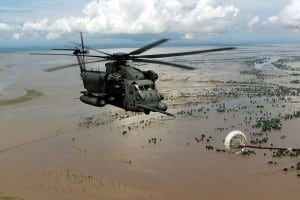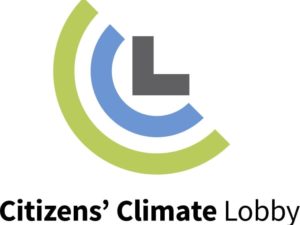By Rahul Srivastava
Late last week the Obama administration released its first National Security Strategy paper since 2010, focusing on climate change as a key national security priority. Placing it alongside other important security concerns – ISIL, Russian encroachment in Ukraine, North Korean nuclear weapons development – the White House took the fight against a climate a step forward.
Beginning with, “Climate change is an urgent and growing threat to our national security, contributing to increased natural disasters, refugee flows, and conflicts over basic resources like food and water,” the White House laid out the threat climate change poses to our national security. The section went on to cite improvements from the past, efforts made to combat climate change, and hopes for the future.
The document mentioned the U.S. has reduced emissions more than any other country in the last six years, while also maintaining a commitment to reduce 2005 levels by 26 to 28 percent by 2025. It stressed the administration’s international efforts to fight climate change, citing its efforts that include the agreement with China in November of last year, contributing to the Green Climate Fund, and work with African entrepreneurs to launch clean energy projects and environmentally sound agricultural projects.
The Defense Department has long recognized that climate change is a serious threat to national security. At various points in the past, it has published reports warning of climate change and its consequences. Leon Panetta and Robert Gates, former Secretaries of Defense, are two of many high profile defense officials who have stated climate change’s impact on national security.
Last fall, the department’s Quadrennial Review 2014 stated, “Climate change may increase the frequency, scale, and complexity of future missions.” The report laid out the security concerns associated with climate change:
As greenhouse gas emissions increase, sea levels are rising, average global temperatures are increasing, and severe weather patterns are accelerating. These changes, coupled with other global dynamics, including growing, urbanizing, more affluent populations, and substantial economic growth in India, China, Brazil, and other nations, will devastate homes, land, and infrastructure. Climate change may exacerbate water scarcity and lead to sharp increases in food costs. The pressures caused by climate change will influence resource competition while placing additional burdens on economies, societies, and governance institutions around the world. These effects are threat multipliers that will aggravate stressors abroad such as poverty, environmental degradation, political instability, and social tensions – conditions that can enable terrorist activity and other forms of violence.
Climate change’s inclusion in the National Security Strategy comes at a time when the Obama administration is placing greater emphasis on the issue. In his State of the Union address last month, Obama said, “No challenge places greater threat to future generations than climate change.”
The President’s recently released budget proposal incentivizes states to reduce emissions, calls for an increase in spending for the EPA and international climate programs, as well as giving permanent tax credits to renewable energy projects.
Along with the agreement with China, these are telling signs that President Obama is keen to make progress on confronting climate change.
In 2010, the White House National Security Strategy focused on different issues, which did not include threats from ISIL and Russian expansionism. Long-term security interests were listed to be advancing peace in the Middle East and investing in strong and capable partners. In 2015, the administration realizes that securing such interests includes battling climate change and reducing carbon emissions. Doing so is essential to maintain political stability in various regions around the world, a fact that links climate change directly to the security interests of the United States.
Rahul Srivastava is an intern in CCL’s Atlanta office.



